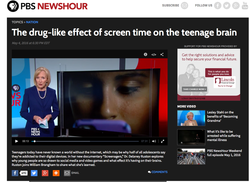 During this time of conflict and uncertainty, one of the best ways you can help yourself and the world at large is to take the time to meditate. Develop a daily practice of reflection, self-compassion, compassion for others. Meditation has been shown time and again through research to improve mental health and relationships. If you are new to meditation, there are two FREE meditation classes that I recommend. They only take 15 minutes a day—well worth the time! -Available for FREE only until Sunday, January 10th: Ten Percent Happier. Download the app or go to the website. https://www.tenpercent.com/challenge It’s a 21 day guided meditation course for free. If you miss that deadline, you can purchase the many courses for a fee and there are scholarships as well. -Always FREE at any time is a fantastic course by Jack Kornfield for beginners or even experienced meditators. You can find that at https://jackkornfield.com/event/mindfulness-daily/ -For more resources, look at my blog with several articles and resources on Mindfulness/Meditation : https://www.connectscounseling.com/blog/category/mindfulness May you be filled with loving kindnessMay you be safe from inner and outer dangersMay you be well in body and mindMay you be at ease and happyMay you feel kindness towards yourself and all others -adaptation of Loving Kindness Meditation
0 Comments
 Most of us start out our lives breathing correctly, with our stomachs rising and falling with each breath. Unfortunately,as we grow up, most of us start to un-learn this natural breathing as life becomes full of stress and our bodies become less relaxed. The problem with this is that we NEED this natural, soothing way of breathing to keep us healthy. Breathing into our stomachs, rather than into our chests, allows for deeper breath and tells our brain that we are OK. That message signals to our brain to shut off the stress reaction. It allows more oxygen to get to the thinking part of our brain, the cortex, so that we can think more clearly. You can see how important it is to be able to breathe correctly when we are in a difficult but not life threatening situation, one where we want to be able to think critically. Situations, for example, where we are in a conflict with someone we care about, or when our emotions are coming on too strong. We want to be able to turn off the Danger! Danger! signal and be able to respond from a relaxed and thoughtful place. In order to be able to return to this natural way of breathing, we need to practice Belly or Diaphragmatic Breathing. Click HERE for a good article on how Diaphragmatic Breathing works. Practice this breathing technique when ever you can, several times a day, until it feels easy and normal. Click HERE for a video that explains exactly how to do it.
 If you are one of my clients, you know that I am always nagging you about taking a moment to pay attention to what is happening RIGHT NOW, not past, not future and also to do breathing exercises. Both research and experience indicate that these two things are the first-line defenses against anxiety and depression, and help increase focus and memory. So let's go over them again! First, mindfulness, or paying attention to what is happening right now: Remember that anxiety and depression are thoughts and feelings about what's going to happen in the future or what has already happened in the past. Ask yourself, “How am I feeling right now in this exact moment?” and listen for the answer from your heart and body, not just your mind. Unless you are in the emergency room being tended to by surgeons, or you've just been kidnapped by aliens, or you have fallen down a manhole, you probably will answer, "I'm okay right in this moment. In this moment right now I am okay.” If so, spend a few seconds just paying attention to that. Really note what it feels like to feel OK, even just in this one moment. Do that as often as you can during the day. It trains your brain to be able to pay attention to what is going on right now and to recognize and store times when you felt OK instead of upset. The second item, breathing or relaxation exercises, or sometimes I call it "mini-meditation" is about relaxing your body and turning on your parasympathetic system. The sympathetic system, often triggered by anxiety , turns on your fight or flight or freeze reactions . The parasympathetic system, in contrast, is your rest and digest system. That's the one you want to make stronger! How do you make it stronger? By activating it many times during the day. And you do that through the breathing and relaxation exercises that we go over in sessions. Click here for a YouTube link that will remind you how to do the Progressive Muscle Relaxation one. Remember that this is all about practice! It's like training a dog or building a muscle. The more that you do it when you're not upset, the easier it will be to activate when you are upset. PRACTICE!! That's right---that's me yelling. Just practice! It will get easier. Life will get better.  Check out this article on tips to help teenagers cope with stress. So many of the strategies are simply helping teens recognize the good things that are happening in their lives and in the world. I like number 5, which says "let the negative emotion run its course" and then gently help the teen to reappraise. It's important not to rush this process. When your teen feels out of sorts, help her identify the emotion and offer sympathy and support while the emotion peaks and ebbs, just like you did when she was little and her emotions got the best of her. After the storm has subsided, then you can step in and help her try to look at the problem from a different perspective. But the key is to do this very gently! No one likes to be told in any shape or form, "It's not that bad" when they are feeling stressed. I also like number 9 which suggests helping teens to see the bigger picture. It's very hard for teens to visualize the future. It's a brain thing. During the teenage years, the part of the brain that is able to accurately imagine things that haven't happened yet is not fully developed. That's why teens engage in such risky behaviors; they can't really imagine the consequences of their actions yet. They may be able to verbalize what they've been taught the consequences are, but on their own, they can't effectively imagine them the way an adult can. So, it's good to help them through this process. "Will this matter in ten years? Will it matter in 5 years? Will it matter in one year? How about next month? Next week?" Those kinds of questions, with time for them to ponder, are helpful. Enjoy the article: Positive Emotions: Helping a Teen with LD Cope Better With Stress. Oh, and one more thing: the best way to help a kid cope with stress is to learn to cope well with it yourself! So, maybe try some of these tips out on YOU! |



 RSS Feed
RSS Feed
